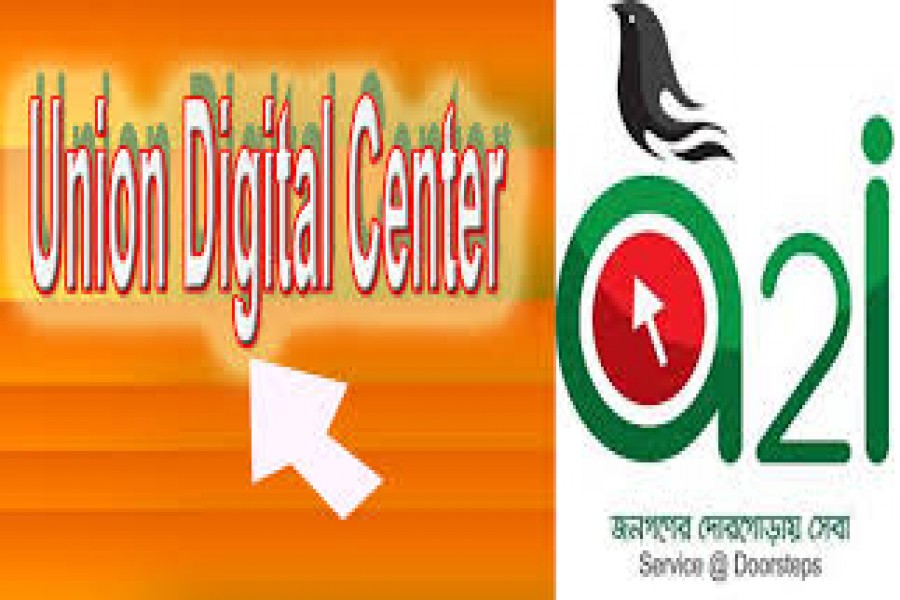Union Digital Centers (UDC) across the country have brought teeming millions under e-services, video calling, browsing and other necessary services at their door steps through a commending initiative of Access to Information (A2I) under the support of UNDP since 2009.
In last 9 years socio economic conditions witnessed tangible changes which created some major challenges for those centers. For example, internet service has become comparatively cheaper and more people especially teenagers are now using smartphones even in remote areas. This trend tends to reduce the scope of receiving services like video calling, internet browsing and other relevant services from UDC.
At the same time, the facilities of internet connections and multimedia services for teachers, students even in most remote areas are also playing a key role. Now a large number of people are quite happy to adopt relevant services like internet browsing, exam’s result, online form submission etc from those centers. Though these centers offer various types of income generating trainings, many other commercial offices and business entities are also offering same trainings in more professional ways. All these factors are now forcing almost all entrepreneurs to reshuffle their service plan.
The project has been very encouraging in terms of revenue generation, employment creations and taking people close to the e-services of government. However, still many operational challenges like interrupted internet connections, non-functional equipment’s like computers, printers, training facilities, supply of electricity exits. Due to such challenges, many people especially in remote areas like char, hoar areas, and coastal areas have been deprived of efficient and regular services.
Like some other problems, ‘making UDC profitable’ has been one of the major problems for UDC. Many of the studies found, apart from few UDC’s most of are non-profitable. Out of more than 100 services, few services like online birth registration, computer compose, print get popularity. Even trainings and other facilities have not been effective enough. So question arises how those UDCs will survive in the days of internet, smartphone and also without sufficient fund as LSGP and donors will not continue their funding for indefinite period.
Some initiatives can be considered to combat exiting challenges. For instance, a comprehensive study or survey can be conducted to explore what are current priority needs of local people and how far they were satisfied at the current services offered by UDC. The findings will reveal the real scenario of needs and allow entrepreneurs to revise their services and price in a more pragmatic way.
At the same time, it would be a great idea to track UDC’s which became successful in terms of income and service quality. It can be replicated in other similar areas. Services like application for migrations, passport fee submission, hajj registration, online application for land records, electricity bill payment can be set as priority services compared to other ineffective services. However, it is only possible when electricity, internet connections and other logistic supports are available.
NGO’s working at UP level especially in remote areas can also be offered logistic support like projector, photocopy and other available services from UDC for the same purpose. Even a comprehensive database on households, population, religion, education poverty, health etc can be developed in a bid to sell and also to be used by government offices, development agencies and research organizations.
Easy and faster ways to get loan with moderate interest rates from banks and financial institutions is expected to increase women entrepreneurship at grassroot level. Even donor agency like Swiss Agency for Development and Cooperation (SDC) offered logistic support like computers, scanner, photocopier and ownerships of centers to women entrepreneurship if they can make it sustainable. Similar initiative can also encourage women entrepreneurship.
Authority concerned needs to consider the fact that, services and price of different services should be fixed in line with market demand. At the same time, training skills of entrepreneurs must be very far better than the commercial entities, otherwise service recipients will only prefer commercial services.
(The writer is a former student of Mass Communication and Journalism Department at Dhaka University, now works as Assistant Manager (Public Relations) of a Dhaka-based private company)


